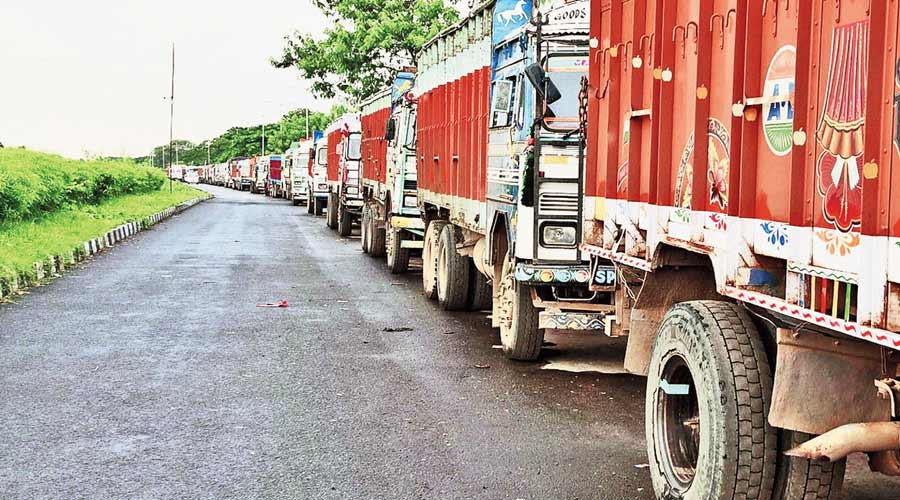The Bengal government on Monday issued a circular allowing trucks to carry more load than what was permissible, in compliance with a notification by the Centre that is in force in most states.
The increase in load will be proportional to the axle weight of transport vehicles and the number of tyres.
Transport department officials said a 12-wheel truck, which could carry up to 20 tonnes, would now be allowed to carry around 25 tonnes. Similarly, a 10-wheel truck will now be allowed to carry 19 tonnes, instead of 16 tonnes.
Truck operators said raising the load limit had been their long-standing demand and the decision would give them the freedom to carry additional load. Their counterparts in several states have been enjoying the freedom since July 2018, the operators said.
Many truck operators said they would bring out their vehicles after months because the state government’s order would finally help make their business viable.
“Just a little over 30 per cent of around 1.75 lakh 12-wheel trucks have been operating. The rest have been idling because it made no sense to carry less load with diesel prices spiralling,” said Subhas Chandra Bose, the general secretary of the West Bengal Truck Operators Association. “Now, at least 60 per cent of the remaining truck owners will start accepting orders.”
Senior officials said the state, too, would gain from the order because the road tax of a transport vehicle is calculated on the basis of its carrying capacity. The road tax for each 12-wheel truck will go up by close to Rs 2,000.
Monday’s directive comes close on the heels of a decision by the Bengal government to slap a fine of Rs 20,000 on any truck operator found overloading.
On July 31, the state government issued an order stating that apart from the fine, an errant truck operator would also have to pay Rs 2,000 for each tonne of excess load. The fine is aimed at serving an “effective deterrent to the menace of overloading”, the order had said.











